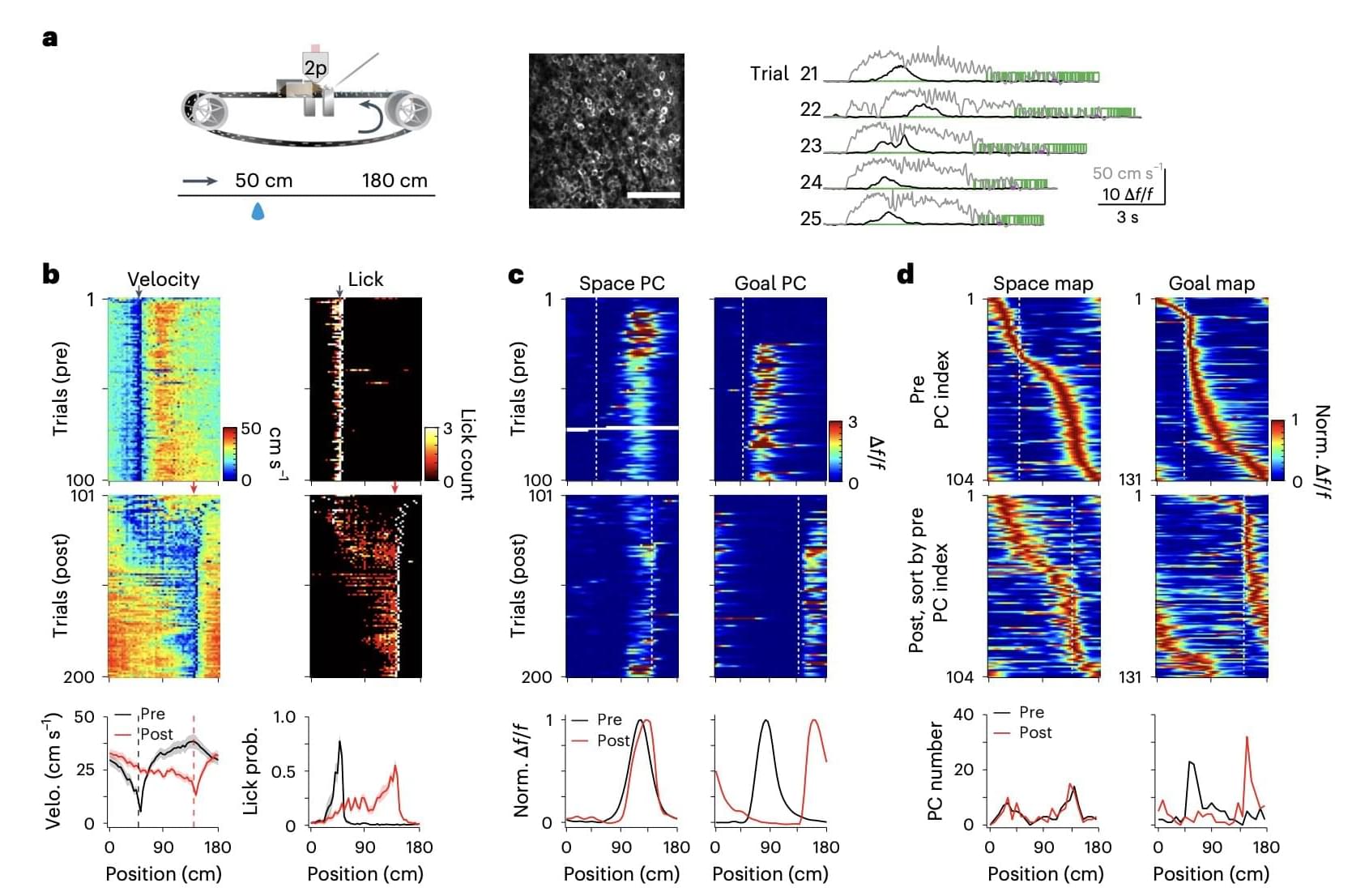The mammalian brain is known to produce mental representations of the spatial environment, known as cognitive maps, that help humans and animals navigate their surroundings. A subpopulation of neurons in the CA1 area of the hippocampus, which are referred to as place cells (PCs), have been found to become active when animals visit specific places or locations in their environment.
The activation of these cells was previously linked to the encoding of space-and goal-related information, which was predicted to support the creation of cognitive maps. While numerous past studies explored the function of PCs and their contribution to the creation of cognitive maps, the role of experience in shaping the creation of these maps has not yet been elucidated.
Researchers at Baylor College of Medicine recently shed new light on the mechanisms through which experience could influence the encoding of information by PCs. Their findings, published in Nature Neuroscience, suggest that experiences produce an adjustment of synaptic input in the mouse brain, which in turn affects the activity of PCs, enabling the production of flexible cognitive maps.
